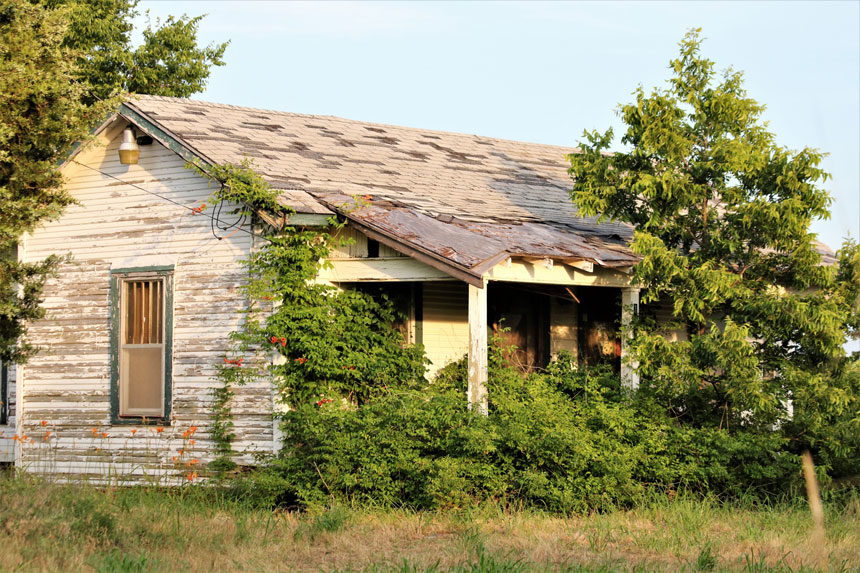Managing editor and logophile Andy Hollandbeck reveals the sometimes surprising roots of common English words and phrases. Remember: Etymology tells us where a word comes from, but not what it means today.
We’ve all seen them: the dead, dented car ditched by the side of the road to suffer the deleterious effects of sun, snow, and rain; the second- or third-hand sofa whose faded cushions and loose springs were well-loved during someone’s college years but left out for trash pickup following graduation; the abandoned home slowly being reclaimed by Mother Nature. These sorry sights are all things we might call dilapidated.
But before there was dilapidated, there was the verb dilapidate. (There still is, of course; it just isn’t used very often.) To dilapidate means “to bring into a condition of ruin or partial decay through misuse or neglect,” and it entered the English language in the mid-16th century. The word traces back to the past participle of the Latin dilapidare, meaning “to squander or demolish.”
Dilapidare, in turn, is formed from dis- “apart” and lapidare “to throw stones at” — apparently an action that was so common it merited its own verb. The original meaning of dilapidare was “to scatter (like) stones,” but it developed the metaphorical meaning of “squander or demolish.”
Some people have seen that lapid in the middle of dilapidate and noticed its similarity to words like lapidary “a cutter or engraver of precious stones” and lapis lazuli, a blue, semi-precious stone whose name literally means “azure stone.” That connection is accurate — all three words trace their roots back to the Latin noun lapis “stone.”
But, recognizing that link to the Latin word for “stone,” some people insist that only a structure made of stone can technically be called dilapidated. Don’t believe them. This is a classic example of etymological fallacy — a belief that a word’s “true” meaning is its original one. Before dilapidate even found its way into English, dilapidare was used to describe run-down things made from all sorts of materials.
Featured image: Sheila Brown, publicdomainpictures.net
Become a Saturday Evening Post member and enjoy unlimited access. Subscribe now




Comments
Dilapidated is really a great word even though the meaning isn’t positive. I like how the word sounds when spoken aloud. I also love the ways ‘disaster’ and ‘fiasco’ sound too. Terrible, I know.